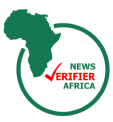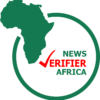Are Banned Anti-Malarial Drugs Being Sold In Nigeria?
On September 1, 2025, a video was posted on X with the claim that anti-malarial medicine is banned across European Union countries, but still sold in Nigeria. The 4 minutes, 9 seconds video listed about 42 antimalarial brands with the caption, “Anti-malaria drugs banned in the EU, but still sold in Nigeria,why because those in leadership in Nigeria don’t give a fvck about their citizens,money first.”
As of when this report was published, over 211,000 people had viewed it, garnering about 5,500 replies, reposts, quotes, likes and bookmarks. In the comment section, @seyialli wrote “Please take down this video as you and the content creator are no authority in Medicine or Pharmacy. She is clearly misinformed. Restricting artemisinin monotherapy to prevent resistance is not the same as it leading to kidney failure. In reality, what is mostly used in Nigeria are ACTs, which still contain Artemisinin. She also showed brand names instead of using generic names. Her understanding of medicine is very limited.” While @famesh2022 said “Truly, you know nothing. There is no malaria in Europe, in case you did not know” .
VERIFICATION
According to the Malaria Journal, the EU does allow the use of antimalarial drugs but typically for treating travelers or individuals returning from malaria-endemic regions, not for large-scale resident use. The European Medicines Agency, EMA, actively evaluates and sometimes approves antimalarial combination treatments. For example, the fixed-dose combination Eurartesim (piperaquine + artenimol) has been recommended for EU use and is considered for treating uncomplicated P. falciparum malaria.
What Is Restricted And Why
The World Health Organisation, WHO, strongly recommends against using artemisinin-based monotherapies because they significantly risk accelerating drug-resistant malaria strains. Antimalarial monotherapy is the use of an antimalarial drug containing a single active compound to treat malaria, rather than a combination of drugs and the global health agency has urged that such monotherapies be withdrawn worldwide.
In 2017, several Nigerian newspapers including Tribune reported the ban of 42 antimalarial monotherapies across the European Union. Following this development, the Nigerian Senate investigated the circulation of these drugs and in July 2017, the National Agency for Food and Drug Administration Control, NAFDAC clarified the issue, describing the report as a misconception. The agency explained that the banned drugs are oral monotherapies containing single Active Pharmaceutical Ingredients, API such as Artesunate as contained in Arinate tablets which are quite different from the recommended Anti-Malaria drugs used in Nigeria.
The World Health Organisation, WHO, guidelines for malaria treatment recommends using Artemisinin-based Combination Therapy, ACT, to treat adults and children with uncomplicated P. falciparum malaria (including infants, pregnant women in their second and third trimesters and breastfeeding women). Monotherapy antimalarials, e.g., artemisinin alone, are not recommended and are being phased out globally as per WHO guidelines but have not been explicitly banned by EU legislation. Antimalarial combination therapies, ACTs, such as piperaquine + artenimol, are approved and used in the EU under EMA regulation.
Chinaza Gentle, a Pharmacist with the University of Port Harcourt Teaching Hospital, Rivers State, provided further context. She noted that “Monotherapy antimalarials drugs like Chloroquine, Quinine and Artemisinin were previously used in treating malaria but studies found out that they were largely ineffective against Plasmodium falciparum in many regions due to resistance.” She added that “Artemisinin-based Combination Therapies, ACTs, recommended by the World Health Organisation, WHO, are the current standard for treating uncomplicated Plasmodium falciparum malaria, which is the most dangerous form of the disease, because they are highly effective, act rapidly, and reduce the risk of drug resistance compared to older monotherapies” and that “most listed drugs are not in use in Nigeria.”
In 2023, Dubawa also fact-checked the claim after its circulation on WhatsApp. Their report confirmed that malaria drug use in Nigeria aligns with the WHO recommendations and does not include the listed drugs.
CONCLUSION
The claim that anti-malarial medicine banned across EU countries is being sold in Nigeria is FALSE. Sales and use of monotherapies have been phased out across the world, including Nigeria, as advised by the WHO. Additionally, the referenced drug list is from 2017 and related concerns have been addressed by NAFDAC.





